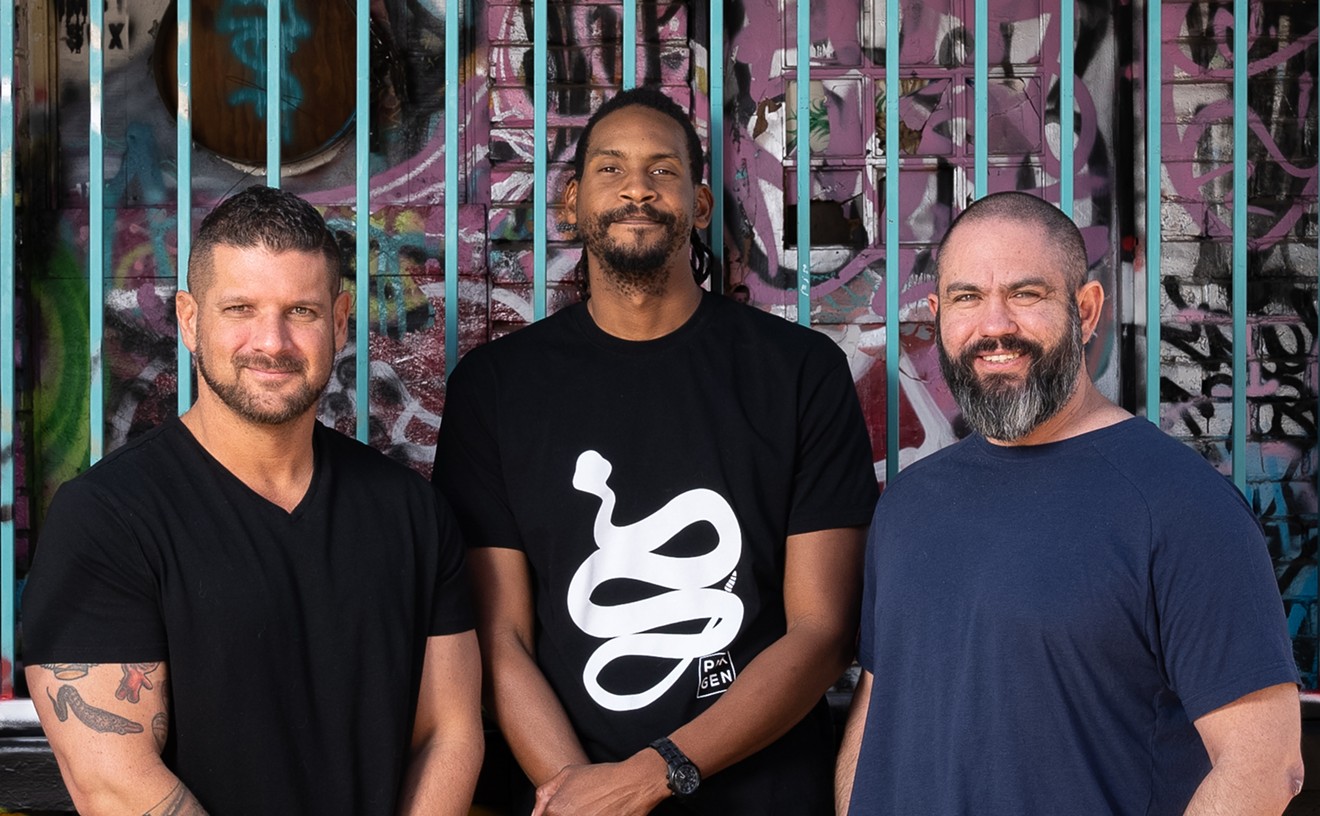They would be--we were breakfasting in the Bistro at the Ritz-Carlton, where Moore stayed while in town. Moore, who became famous as a working-class clown, is getting the kind of show-biz treatment usually afforded rock stars, and he sees no irony in this: "People ask me, 'Why aren't you back in Flint, on the assembly line?' But our dads and moms worked so hard so that we wouldn't have to do that."
Besides, he notes, "It's a signal to me that Miramax is really behind this film." I haven't the heart to tell him that these accommodations are SOP--almost every celebrity on a promotional tour that I've interviewed in the past six years has been put up at the Ritz, from Billy Connolly to the guy in Mystery Science Theatre 3000 to the kid who directed Citizen Ruth. The better evidence of Miramax's commitment to Moore is the studio's decision to donate 50 percent of its profits from The Big One to charities in Moore's beloved, blighted hometown of Flint, Michigan.
The reception we see Moore get from fans in his new film The Big One--and the reception he got from an audience of union activists in Phoenix--suggests that the perception of Moore as the admirable class clown of American labor, delighting his classmates and annoying the principal, has changed. For some American union activists, and for college students of an activist bent, he's come to be seen as a hero.
Moore is highly class-conscious--he warms up immediately upon learning that my parents live on a Teamster pension: "Do you know how rare it is for me to talk to a journalist from a working-class background? I talked to this woman from Fortune magazine, and she was trying to come off like, 'Hey, I'm one of you.' I asked her where she was from, and she said Allentown, and I thought, don't bullshit me. I don't listen to that Billy Joel song, I know that Allentown wasn't the hardest-hit town in Pennsylvania. We're talking Bethlehem.
"But anyway, it turned out her dad was a dentist. So from people like that, you always get, 'Hey, haven't you heard, there's an economic upturn.'"
If Moore suspects that being the daughter of an Allentown dentist means your blood runs blue, then it's not hard to guess his feelings on "the Brentwood mindset" of Monica Lewinsky. Asked about the Clinton sex scandal, Moore offers: "I'm one of the few people who doesn't believe it. Remember what it was like when you were 21? All you did was lie about sex. So here's Linda Tripp, who's obviously not gettin' any, and this girl goes to her and says, 'Hey, I blew him under the desk' or whatever, you know, rubbin' it in." Nonetheless, of the president, Moore adds, "I have no doubt that he's a touchy-feely baby boomer who's been to one too many Renaissance weekends. And more touchy than feely."
His feelings on another Brentwood resident, O.J. Simpson, are likewise unconventional. Moore tells of interviewing Simpson for a television program. "It was the first time he's faced a live studio audience since the murders," Moore says. "He was totally believable. That's the scary part. So either he's convinced himself that he didn't do it, or else a great injustice has been done. Of course, as I say in the book [Downsize This!], he's a piece of shit whether he did it or not."
Among Moore's detractors through the years have been Harlan Jacobson, who in Film Comment asserted that Moore had fudged facts in Roger & Me to exaggerate a comic effect, and Pauline Kael, who reviewed the same film for The New Yorker and wrote that Moore was mocking working-class people. Moore responds to both charges with surprising bitterness. Of Kael's complaint, he says: "Nobody asks why Spike Lee makes black jokes, or why Woody Allen makes Jewish-mother jokes. So why can't I make working-class jokes? I'm one of those people."
Toward Jacobson's charges, he's even more vehement: "I paid no attention to it at the time, which was a big mistake. I thought, who pays any attention to Film Comment? But he did not tell the truth. It's 100 percent lie. He imposed a time line on the film that I never did, and then busted me for not sticking to it. It didn't hurt me professionally, obviously, because I'm getting to do another movie, but it hurt me personally very much. It hurt in the same way that it does if you're Jewish, and somebody tells you that six million didn't die, that it was only a million."
This comparison may be a bit much, in the same way that there may be one shot too many of adoring crowds rising to their feet for Moore in The Big One. The film is hilarious, and it makes some very trenchant points, as does its director. But he should keep the reality check-ups regular--the less facetiously he wears the guise of Working-Class Avenger, the less becomingly it fits.
The poster for The Big One is a send-up of the poster for Men in Black--Moore in a black suit and shades, carrying a big microphone in lieu of a death-blaster. The slug line reads: "Protecting the Universe From the Scum of Corporate America." A good joke, but it appears that not all of Moore's fans recognize it's a joke at all. Let's hope he still does.










